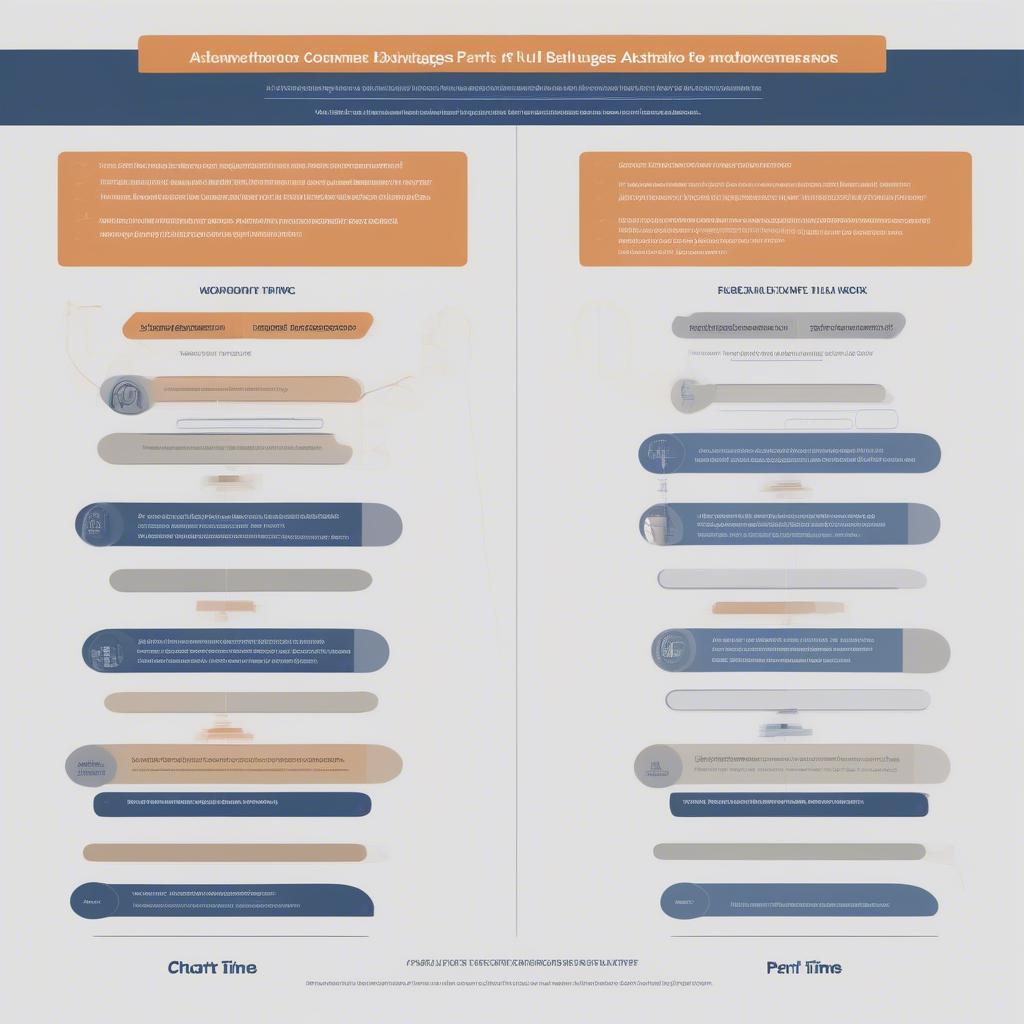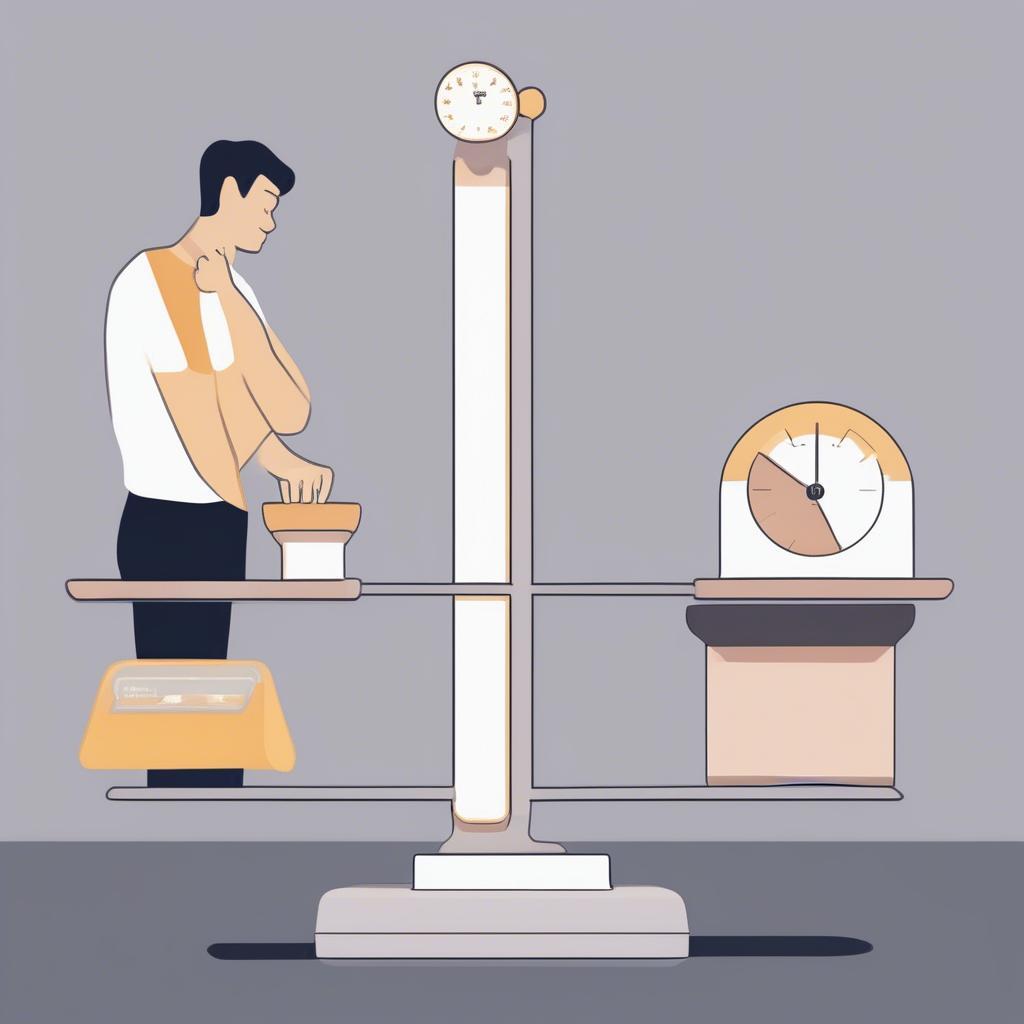Understanding the difference between part-time and full-time employment is crucial for both employers and employees. Choosing the right work arrangement impacts work-life balance, income, and career progression. This article will explore the key distinctions between part-time and full-time jobs to help you make informed decisions about your career.
Defining Part-Time and Full-Time Employment
Part-time employment typically involves working fewer hours than a full-time position. The exact number of hours considered part-time can vary depending on company policy, industry, and legal regulations. Generally, part-time work ranges from a few hours a week to around 30 hours. Full-time employment, conversely, involves a standard number of working hours per week, typically 35-40 hours or more. This often includes benefits like health insurance and paid time off.
 Phân biệt giữa công việc bán thời gian và toàn thời gian
Phân biệt giữa công việc bán thời gian và toàn thời gian
Key Differences: Part-Time vs. Full-Time
Several factors distinguish part-time and full-time positions beyond just the number of hours worked. These include compensation, benefits, career progression, and flexibility.
Compensation and Benefits
Full-time employees generally earn a higher salary and are eligible for a wider range of benefits, including health insurance, retirement plans, paid time off, and sick leave. Part-time employees, while often earning an hourly wage, may not receive the same benefits packages. Some companies offer pro-rated benefits for part-time staff, but this varies greatly.
Career Progression
Full-time roles often offer more opportunities for career advancement. This is because full-time employees are typically more integrated into the company’s operations and have more exposure to different projects and responsibilities. Part-time employment can still offer career progression, especially within the same company, but the opportunities may be more limited. What is a contingent worker, by the way? They also have unique considerations for career growth.
Flexibility and Work-Life Balance
Part-time jobs often provide greater flexibility in work schedules, which can be beneficial for students, parents, or individuals pursuing other interests. Full-time positions, while offering more stability, can demand more rigid work hours. Choosing between part-time and full-time depends on individual priorities and the need for work-life balance.
 Ưu và khuyết điểm của công việc bán thời gian và toàn thời gian
Ưu và khuyết điểm của công việc bán thời gian và toàn thời gian
Making the Right Choice: Part Time or Full Time?
The decision to pursue part-time or full-time employment depends on individual circumstances and career goals. Consider your financial needs, desired work-life balance, and long-term career aspirations.
Considering Your Financial Situation
Evaluate your financial obligations and determine if a part-time or full-time income is necessary to meet your needs. Full-time work offers more financial stability, while part-time work might require supplemental income or careful budgeting.
Balancing Work and Personal Life
Think about your personal commitments and how much time you can realistically dedicate to work. Part-time employment can offer greater flexibility for individuals with family responsibilities or other pursuits. However, full-time work allows for more immersion in a career path.
Long-Term Career Goals
Assess your career aspirations and determine which work arrangement will best support your growth. Full-time positions often provide more opportunities for advancement, while part-time jobs can allow for skill development or experience in different fields. It might even be helpful to practice asking for a raise in English to prepare for full-time opportunities. Check out our guide on đề nghị tăng lương bằng tiếng anh.
 Lựa chọn phù hợp giữa công việc bán thời gian và toàn thời gian
Lựa chọn phù hợp giữa công việc bán thời gian và toàn thời gian
Conclusion
Understanding the difference between part-time and full-time employment is essential for making informed career choices. By carefully weighing the factors discussed in this article, individuals can choose the work arrangement that best aligns with their needs and goals. Whether you seek flexibility or career advancement, the right choice depends on your individual circumstances and priorities. Remember to consider your financial situation, work-life balance preferences, and long-term career aspirations when making this important decision.
FAQ
- What is the typical number of hours for part-time work?
- What are the common benefits offered to full-time employees?
- Can part-time employees receive benefits?
- How does work arrangement impact career progression?
- What are the advantages of part-time employment for students?
- How can I determine if part-time or full-time work is right for me?
- Can I switch from part-time to full-time within a company? You might want to look into what is a contingent worker to understand more about different employment classifications.


